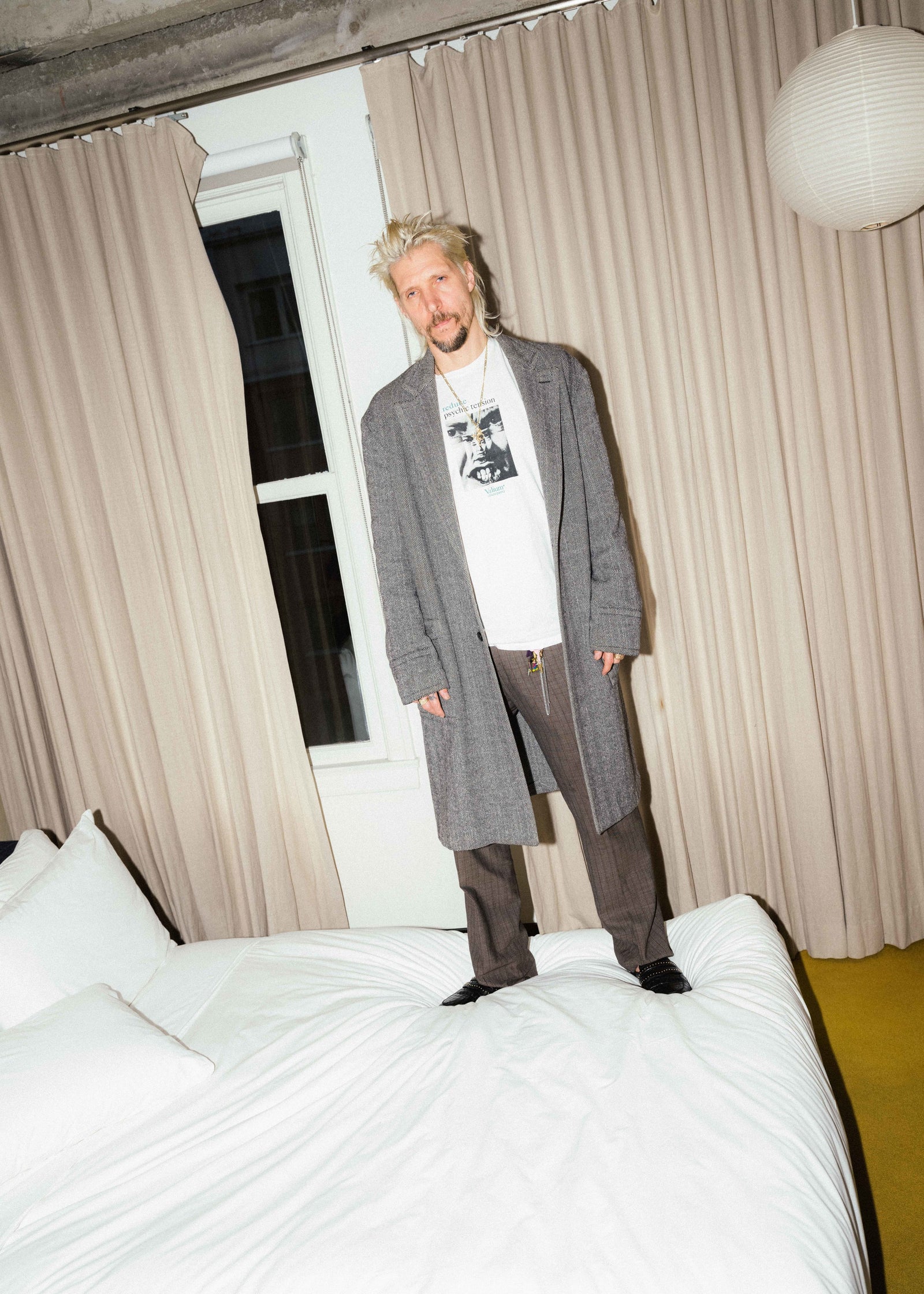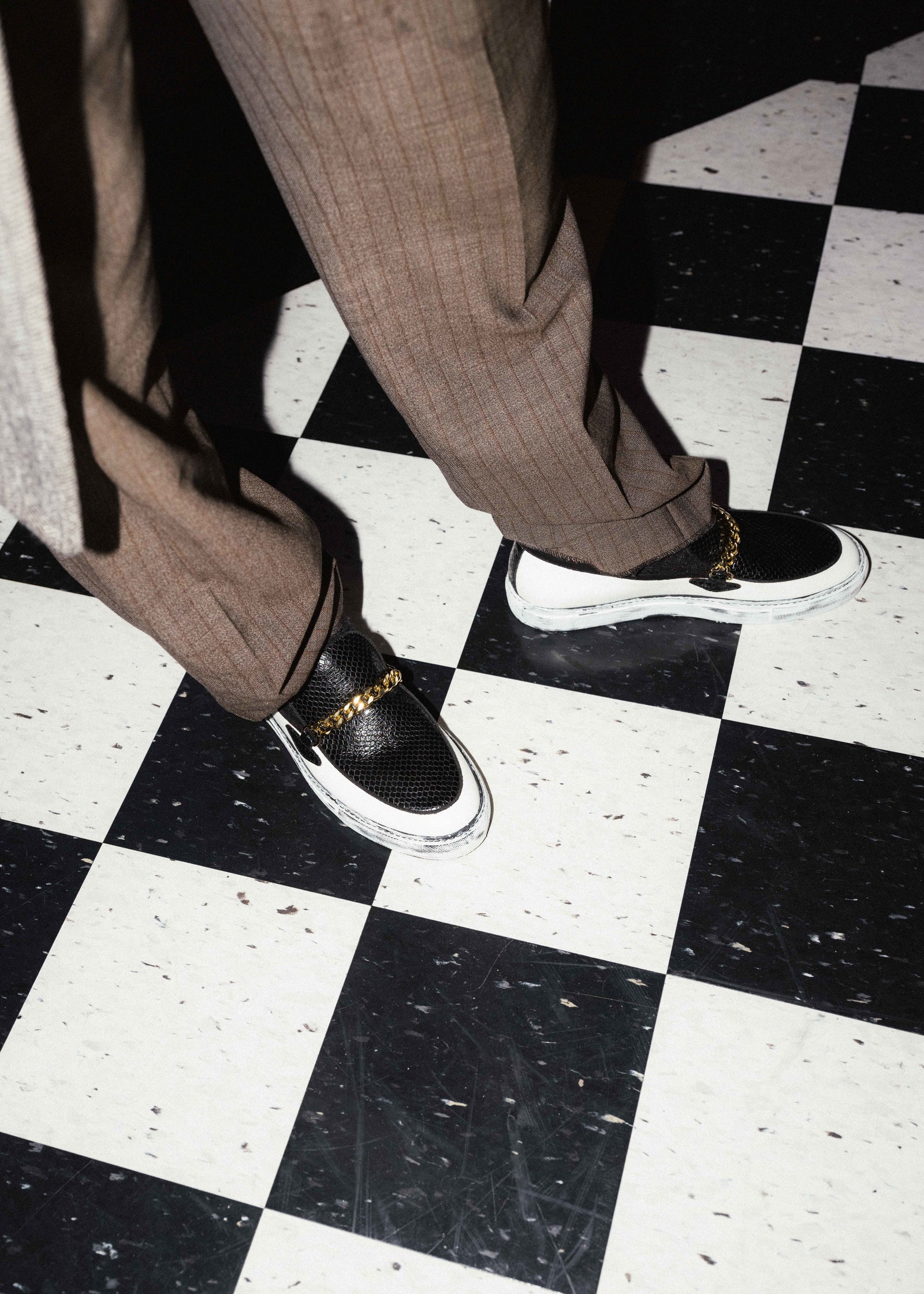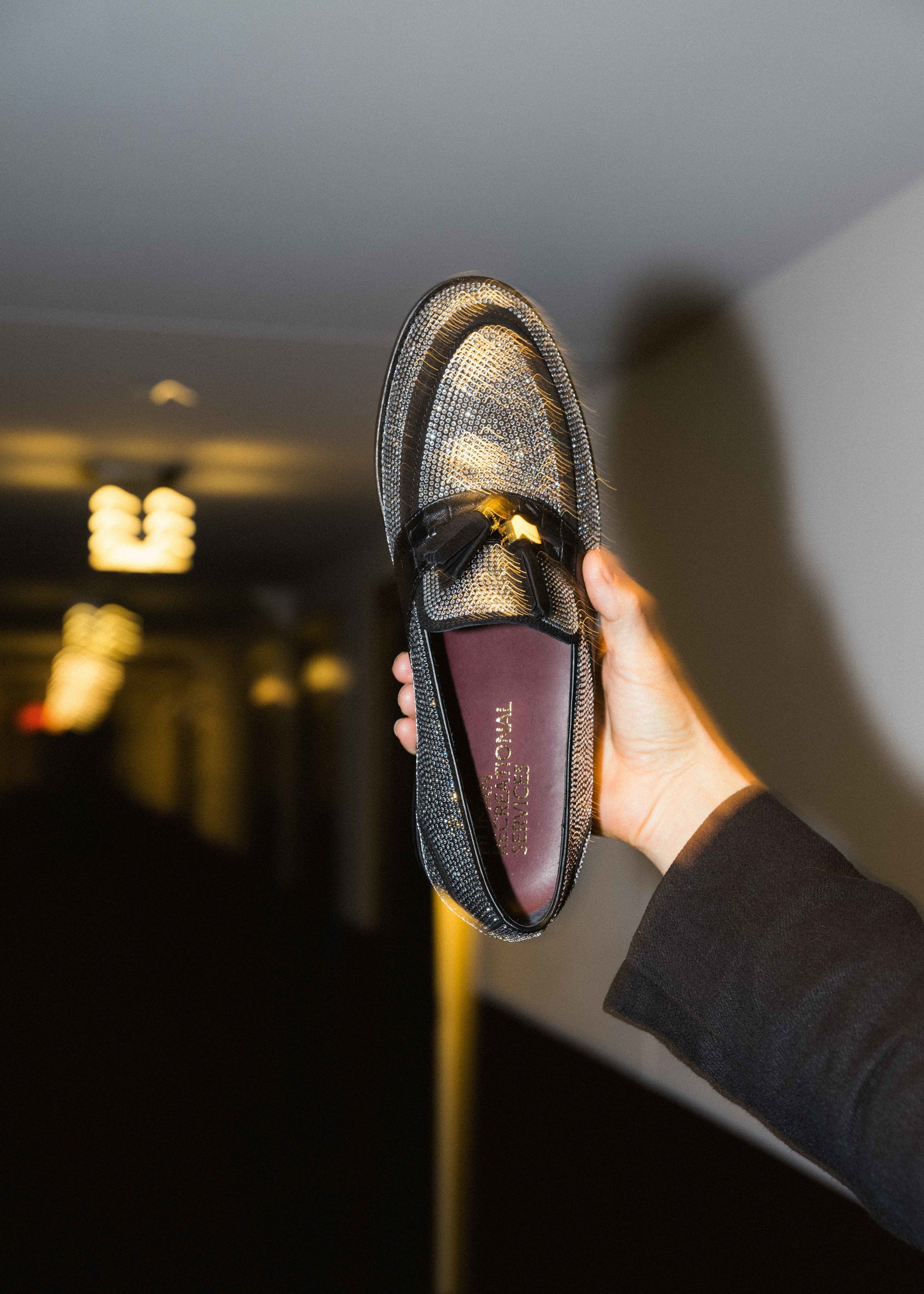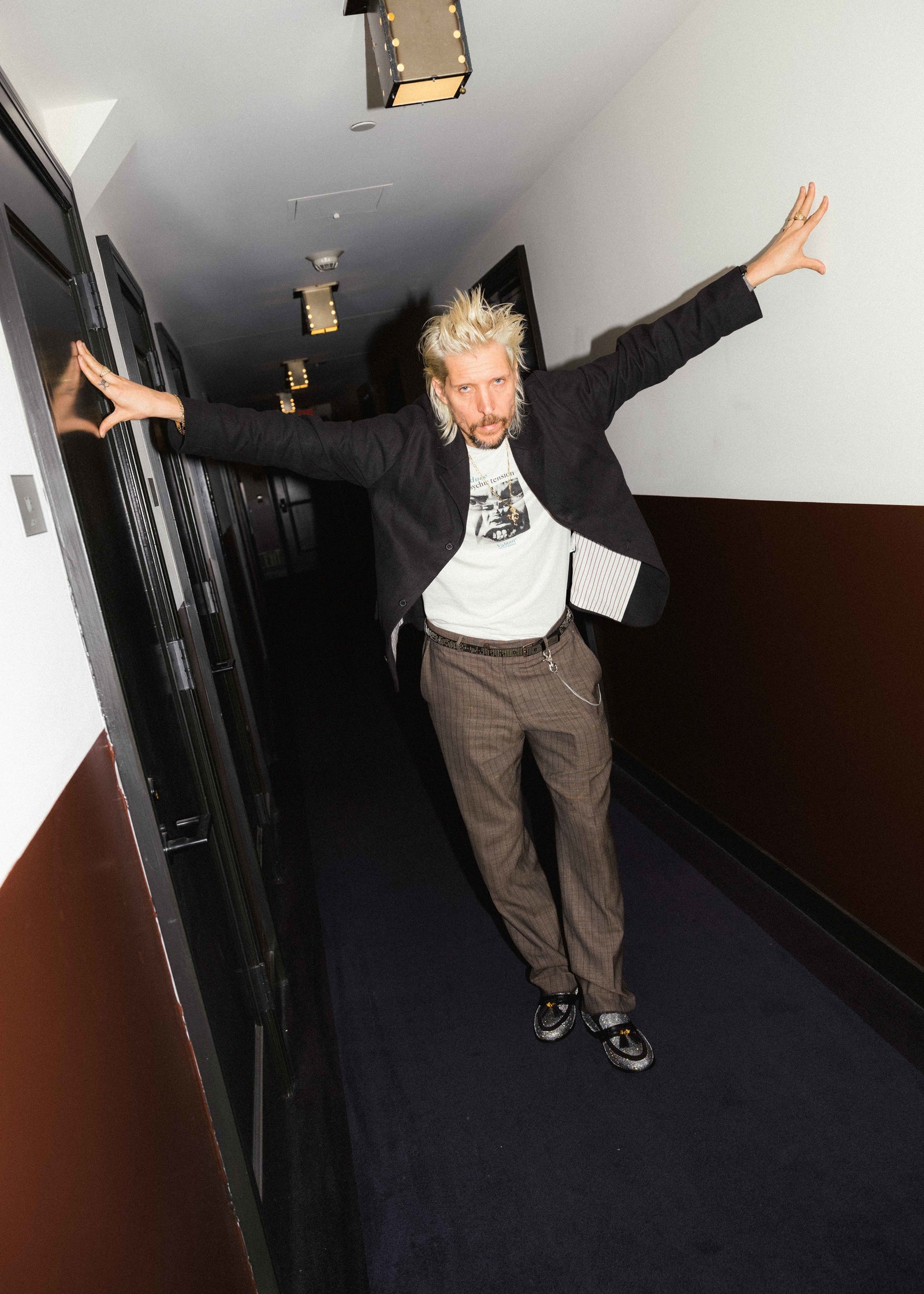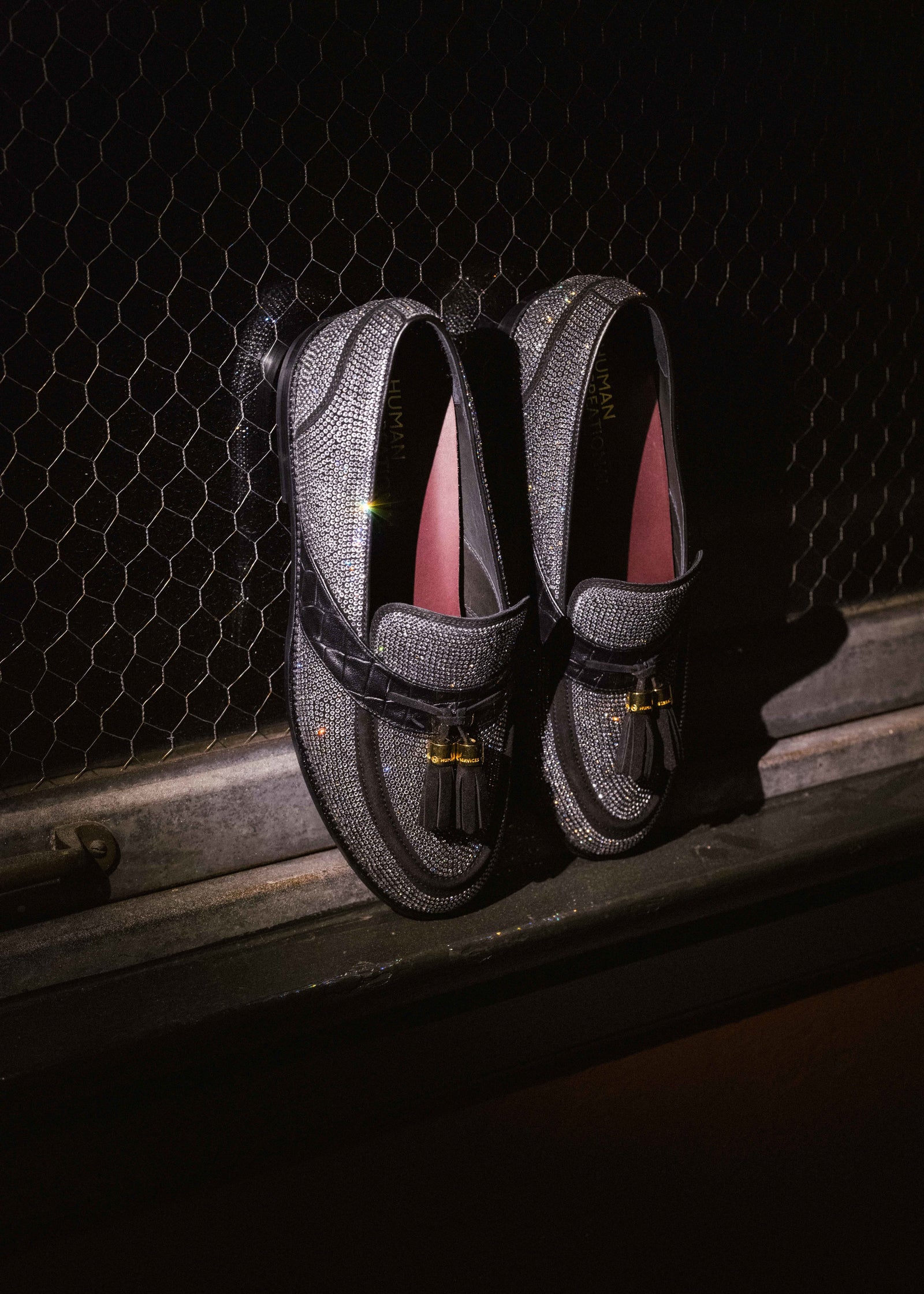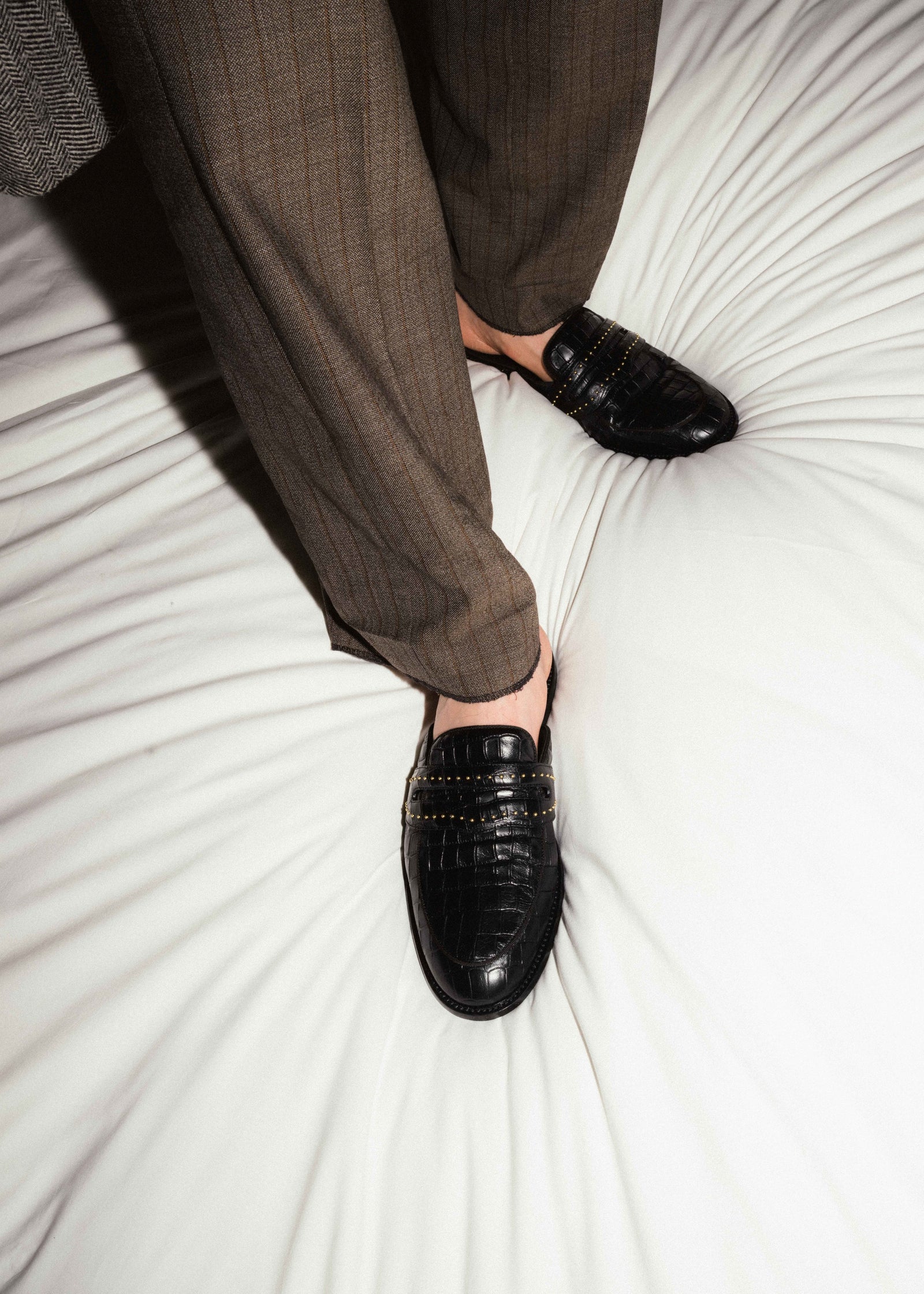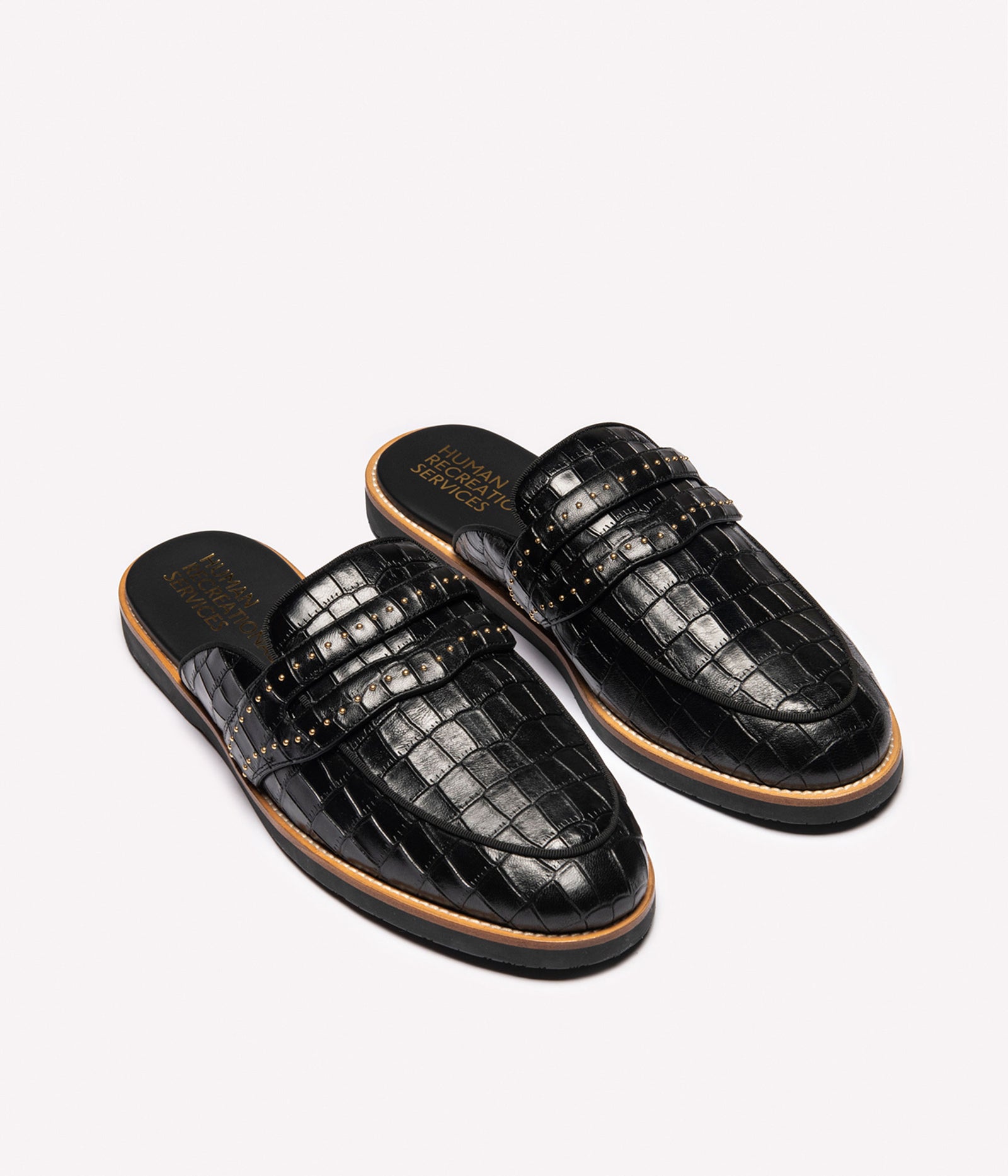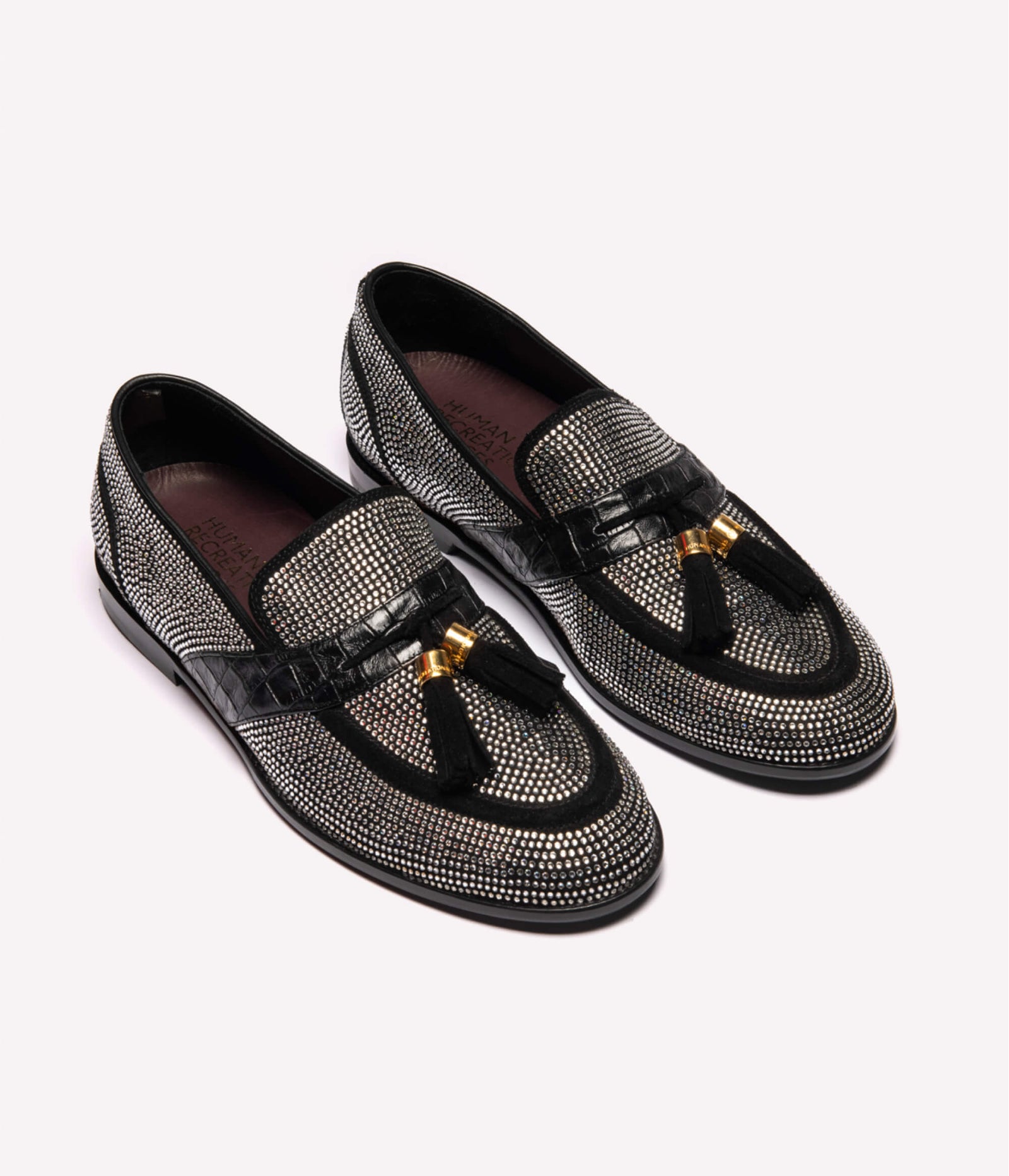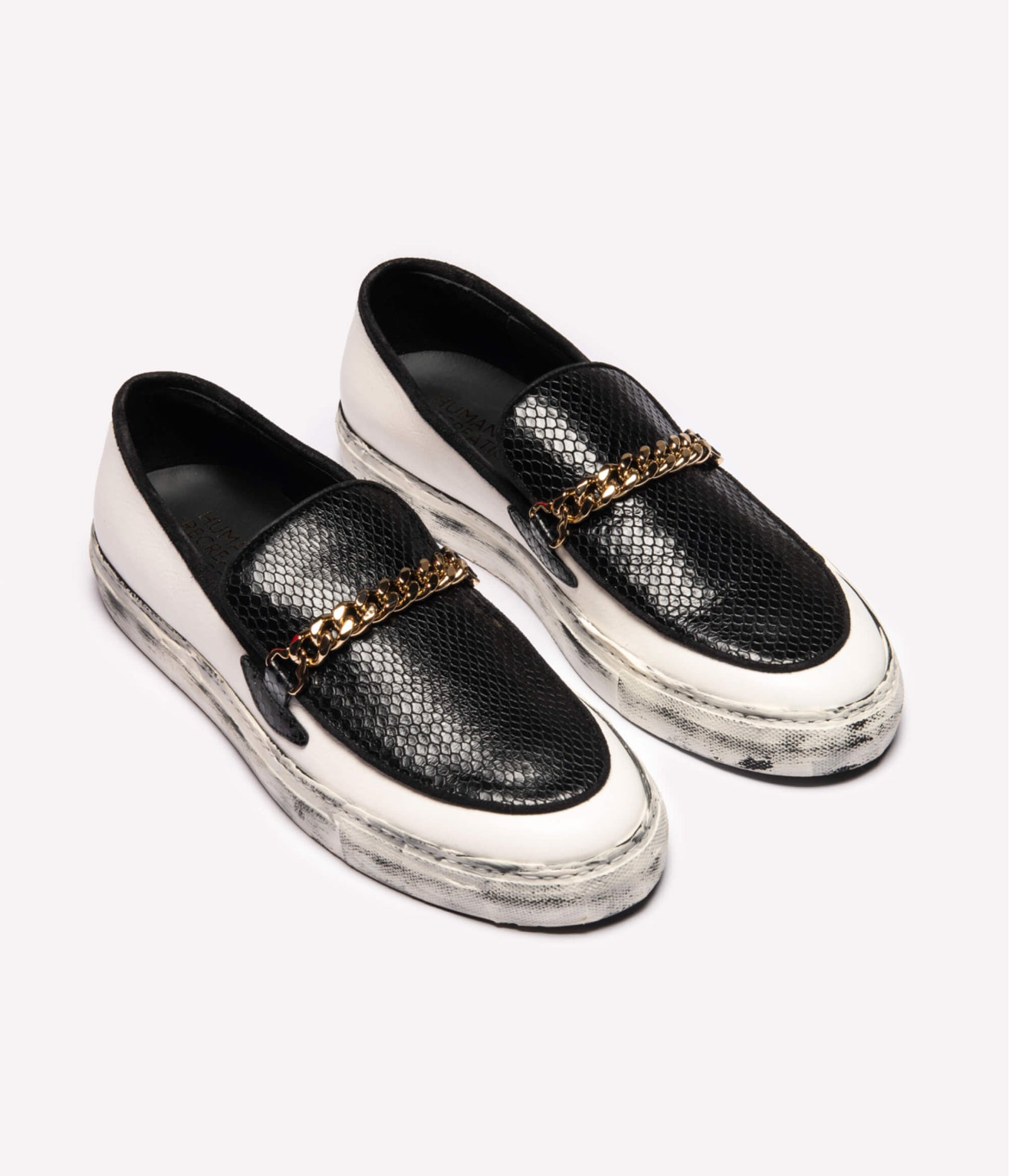FIELD NOTES
Words by Naz Kawakami
Photos by Conrad Bauer
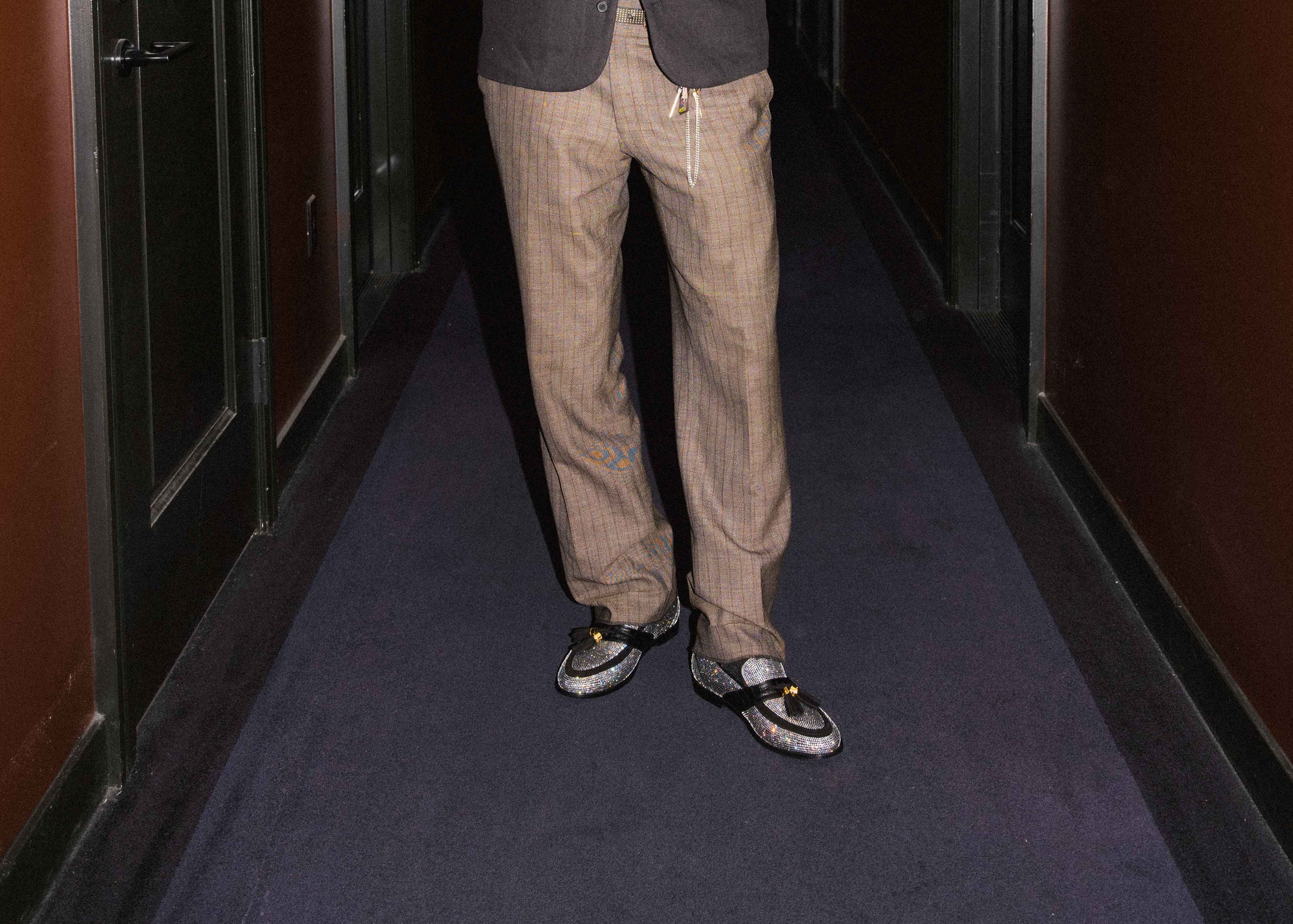
What role do you think skateboarding has played in the formation of HRS, a brand that exists simultaneously within and outside of skateboarding culture?
I think skateboarding was vital. It teaches you that anything is possible, so long as you keep going - keep trying until you can’t walk. It’s almost sort of a naive way of thinking, being very hopeful that things will work. When I looked at tricks that I wanted to try, I knew that success might not be possible, but you continue to try it just to find out. It’s as much about trying as it is succeeding, in a way. You aren’t looking to just achieve the goal, it’s about the process. I enjoy the process, and much like in skateboarding, trying a trick and learning from it, I have enjoyed the process of building this brand. Skateboarding taught me ambition, to try without the fear of failure, almost to the point of it being sort of insane.
Skateboarding definitely does teach you ambition, and it’s interesting to see what people turn that ambition toward. HRS as a brand is so specific, why did you turn your attention toward such a specific thing?
Skateboarding allowed us the ability to express ourselves in certain ways - our trick selection, the clothes we wore, we customized those parts of ourselves. That sort of cultural customization were the starting point for my own creativity, and it allowed me to feel that I could go in whichever creative direction I wanted to. As I got into my 20s and to a higher level in my career, I felt that I was in a position to design clothes, shoes, skateboard graphics - I was interested in those creative things and what I was making represented me very accurately. Every phase of design and whatever I was putting out was an extension of where my life was and who I was at that time. As I got older and into my 30s, my tastes and interests changed. I traveled and was exposed to more variety. I wasn’t wearing the same shoes or pants that I had before. I was under a different influence. There was a sophistication that I had gotten by traveling and having my world open up. As I got older, there was a part of me that wanted to have nicer things. It is part of my personality to always be on the move, always creating something, and sharing it with others. When I started HRS, it was an extension of who I was and have become, and the sophistication that I had gained.
Every iteration of HRS makes sense within the greater brand, but it is still very stylistically diverse. How, then, would you begin to define that aesthetic?
This might sound rude, but it’s a bit of a bastard child. It is influenced by many different things and doesn’t necessarily belong to any one style or aesthetic. Much like myself, it pulls from countless things. I grew up in Anchorage, Alaska, which is where it began. I’d watch these skate videos and found idols to look up to, but also their styles, their music, and what they were influenced by.
Who were some of those idols?
The icons to me were Ed Templeton, Matt Hensley, Mark Gonzales, Natas Kaupas, because not only were they amazing skateboarders, they were artists, musicians - they did amazing things in their lives and have continued to be extremely creative outside of skateboarding. Those were role models, father figures, even. I looked to them as inspirations, and a lot of this brand is a result of those early exposures and ways of being creative, in addition to 25 years of traveling and experiencing different neighborhoods, cultures, and styles. There is an ethos to the brand, a cohesiveness to it, but at the same time, the brand is able to bounce from a leather soled, tasseled loafer, to a sneaker inspired by Axl Rose.
What do you think has been your biggest success and your biggest challenge?
I think that the biggest success is at the same time the biggest challenge, and that is to do with production. At the start, I produced in the Dominican Republic, making 45-80 pairs of one color and selling them online, but giving a lot away to friends. After about 6 months of that, I moved production to Italy because I felt that it was a better place to be and that I had graduated to a certain level within design and I needed the production to meet that level. It is a success for me that I have been able to manufacture at the highest level. At the same time, though, the production at that level - forming a team, language barriers, ensuring quality - has been the biggest challenge. It is especially difficult because I don’t want to scale to such a commercial level that I am making profit through volume because this is still a niche product. Not to say that we don’t want to or never will be at that level, but it is part of the ethos of the brand that these products are almost bespoke.
Your brand possesses a level of class and elevation, but is still within the realm of skateboarding, how challenging is it to maintain that balance?
That has been another challenge. How do I express all of these aspects of skateboarding and the lifestyle without it being a traditional skate brand? In skateboarding, in your career as a skater, the obvious next step is to find a skateboard, clothing, or shoe company that is really endemic to skateboarding culture. I think that over the years, I’ve earned a certain reputation within skateboarding that if I founded a skate company today, people would trust my taste and carry it, but the challenge has been in HRS’ not being a traditional skate company and communicating with a customer base that is unfamiliar with what we are about or even who I am outside of the brand.
The challenge of any brand, I think, is to remain authentic to itself. Because you’re almost 5 years in, what do you think your aspirations are in the next 5 years? Did you achieve what you set out to do so far?
It’s all been a learning process, and I have to think about what my original goals are. I wanted to produce 50 pairs of shoes and give them to my friends and sell some online, and I did that, but the goal then changes and is ever-changing. It gathers momentum and takes on a life of itself. I see now that there are a lot of fans of the brand that are adjacent to the world that I grew up in, and HRS is building its own tribe, but now the goals are centered around nurturing and providing accessibility to that tribe - making a product with integrity that people can attain.
That should be the goal of any luxury brand. Would you describe HRS as luxury?
I’m hesitant to call it luxury because I think that that term comes with a lot of baggage. I make products that are very high quality and in small quantities, but at the same time, I don’t want to pigeonhole HRS as being luxury. I want to be accessible to the average person - provide a product that is attainable without compromising quality and integrity.
What is a bit of advice or piece of knowledge that you would pass on to someone who has ambition and looks to you as a role model?
One thing I have definitely learned over the years is the importance of having a plan. Really think about what you want and be honest with yourself about what you are able to accomplish. Is this something I can do alone or do I need to hire someone to do that? And if I can do it, do I have the bandwidth to? Another important thing to determine for yourself is whether or not you are willing to fail and learn from that failure. Hardly anything is a success right from the beginning, it often requires you to fail and fail again. Like what we were discussing about skateboarding. You try and try a trick over and over and learn from each try and make slight adjustments and improvements. When you’re out there trying a trick, you don’t try it the exact same way every time, you fail, make a change, and try again. You’ll never get it perfect, but you try to be. Whether you skate or not, the best thing you can learn to do is face failure, readjust, try again. I hope that I can instill that in others, if there are kids looking up to me for that kind of thing. I am still figuring it out and, like in skating, it’ll never be perfect, but it’s important to try, and I want to be a conduit through which others can discover what they are capable of accomplishing.
